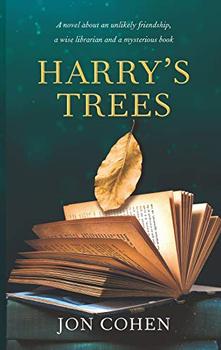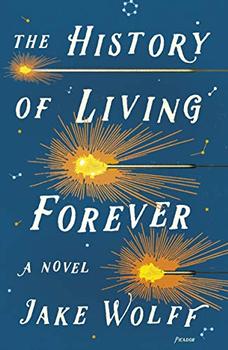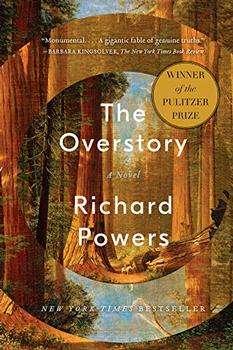Summary | Excerpt | Reviews | Beyond the book | Read-Alikes | Genres & Themes | Author Bio

Jon Cohen, with his prior novels The Man in the Window and Max Lakeman and the Beautiful Stranger, has gained a reputation for crafting unusual, deeply empathetic love stories. In his third novel, Harry's Trees, Cohen explores how some surprising circumstances - and one unusual fairy tale - help pull his unforgettable characters out of grief and into a kind of new beginning.
Harry Crane knew he loved two things most of all: his wife Beth, and spending time with trees. So when Beth is killed in a freak accident while Harry - who refuses to quit his soul-sucking Forestry Service desk job unless he receives a financial windfall - buys a lottery ticket, he is utterly lost. Months later, when he receives a massive wrongful death settlement, he is, ironically, even more bereft. Now, as a result of Beth's death, Harry has the financial security and freedom he could only dream of before - but at such a devastating cost.
Meanwhile, halfway across Pennsylvania, in the Endless Forest and rolling hills outside Scranton, Amanda Jeffers and her 10-year-old daughter Oriana are also finding their way through unimaginable loss and grief. Amanda's strong, capable husband Dean, a man who spent his life working with his hands and body, died - coincidentally on the very same day as Harry's Beth - machinery accident, but from a silent aneurysm. Oriana - whose vivid imagination has been fed by frequent trips to her small town's crumbling library - hears a description of her father's body looking like a snow angel, and she's become convinced that he transformed into a winged creature, if not an angel then some kind of powerful bird.
When near-tragic circumstances cause Harry and Oriana's paths to cross, Oriana decides that her father's spirit, in the guise of a red-tailed hawk, spared Harry for a reason. She convinces Amanda to let Harry stay in the magnificent tree house that Dean built in the forest surrounding their home and she introduces Harry to The Grum's Ledger, the fairy tale that will soon shape, not only his story, but many others' as well.
The Grum's Ledger is a slim story (it's told in full, complete with illustrations, within the novel), and also a magical one, not only in subject but also in effect. Everyone who reads the story finds a very personal meaning within it, and everyone who acts on whatever moral they perceive finds their own path to fulfillment. This works not only on Harry and Oriana, but also on the town's spinster librarian and Dean's hapless, guilt-stricken best friend. As Oriana reflects near the novel's end, "you had to survive the big things in order to reach the best part of your story."
Harry's Trees is too complicated and nuanced to be reduced to a "happily ever after" kind of resolution - Cohen's portrayal of grief and recovery is at times raw, and the dynamic between Harry and his menacing brother (fittingly named Wolf) is especially dark and in many ways unresolved. Cohen also resists sentimentality, which could easily have subsumed his more subtle characterizations of the fanciful but practical Oriana, the librarian with a racy past, and especially the down-to-earth, eminently capable and pragmatic Amanda. Harry's Trees is the best kind of feel-good novel - one that gives readers glimpses into magic and hope and happy endings but doesn't lose sight of the fact that its characters should feel like real people leading real lives colored by loss and confusion and mortgage payments. Cohen's novel is in many ways about generosity, but it's also generous in its telling, as it allows each character's story to take root and spring to life, building a narrative as rich and interwoven as the forests Harry loves.
![]() This review was originally published in The BookBrowse Review in August 2018, and has been updated for the
August 2019 edition.
Click here to go to this issue.
This review was originally published in The BookBrowse Review in August 2018, and has been updated for the
August 2019 edition.
Click here to go to this issue.

If you liked Harry's Trees, try these:

by Jake Wolff
Published 2020
A chemistry student falls for his teacher and uncovers a centuries-old quest for the Elixir of Life.

by Richard Powers
Published 2019
"The best novel ever written about trees, and really just one of the best novels, period."
—Ann Patchett
Your guide toexceptional books
BookBrowse seeks out and recommends the best in contemporary fiction and nonfiction—books that not only engage and entertain but also deepen our understanding of ourselves and the world around us.